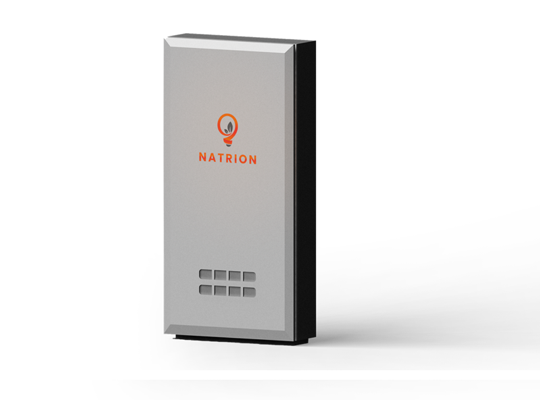BINGHAMTON, N.Y., – Natrion has announced a new high-performance, flexible, and durable solid electrolyte thin film for the production of all-solid-state batteries (ASSBs). Called the Lithium Solid Ionic Composite (LISIC), this technology has been designed as a “plug and play” component that can be rapidly implemented by lithium-ion battery manufacturers to turn their existing product lines into ASSBs that mitigate fire risk, improve lifespan, and enable the construction of longer-range electric vehicles.
“This solution has great potential to make commercial solid state batteries a reality in the near term” said Russell Hoge, Ph.D., a former senior executive with Mobil Chemical Company (retired). “Enabling solid-state battery technologies like this will be critical in overcoming the safety and performance obstacles that are currently in the way of mass market grid energy storage and electric vehicles,” added Hoge.
Efforts to commercialize ASSBs have been impeded by the modifications that must be made to well-established battery cell architectures, assembly machinery, and component chemistry. Typical battery production processes involve the sandwiching of porous plastic separator membranes soaked with liquid electrolyte between electrodes. Liquid electrolyte is the principal source of volatility and flammability in current LIBs. Natrion set out to create a solid electrolyte that could be substituted in the place of membranes to eliminate the use of liquid with minimal modification to manufacturing techniques. The LISIC technology that the company recently patented possesses some key value propositions as outlined below:
- Flexible and mechanically durable dry polymer-ceramic composite of equivalent thickness to separator membranes and room temperature ionic conductivity of 0.3 mS/cm.
- Thermal stability range of -60°F to 500°F and high voltage compatibility with lithium-metal anodes and nickel-rich cathodes utilized in chemistries of >1000Wh/L energy density.
- Unique engineered surface interface facilitating cold pressing with electrodes without additional internal cell pressure and even electrodeposition for perturbing dendrite formation.
“The next step in LISIC’s path to market is scale-up and use case validation. We are commencing commercial cell pilots this summer and are looking at ways to build out a pilot plant, all of which will demonstrate the unique scalability and ease-of-use of this technology,” said Alex Kosyakov, Founder and CEO of Natrion.









